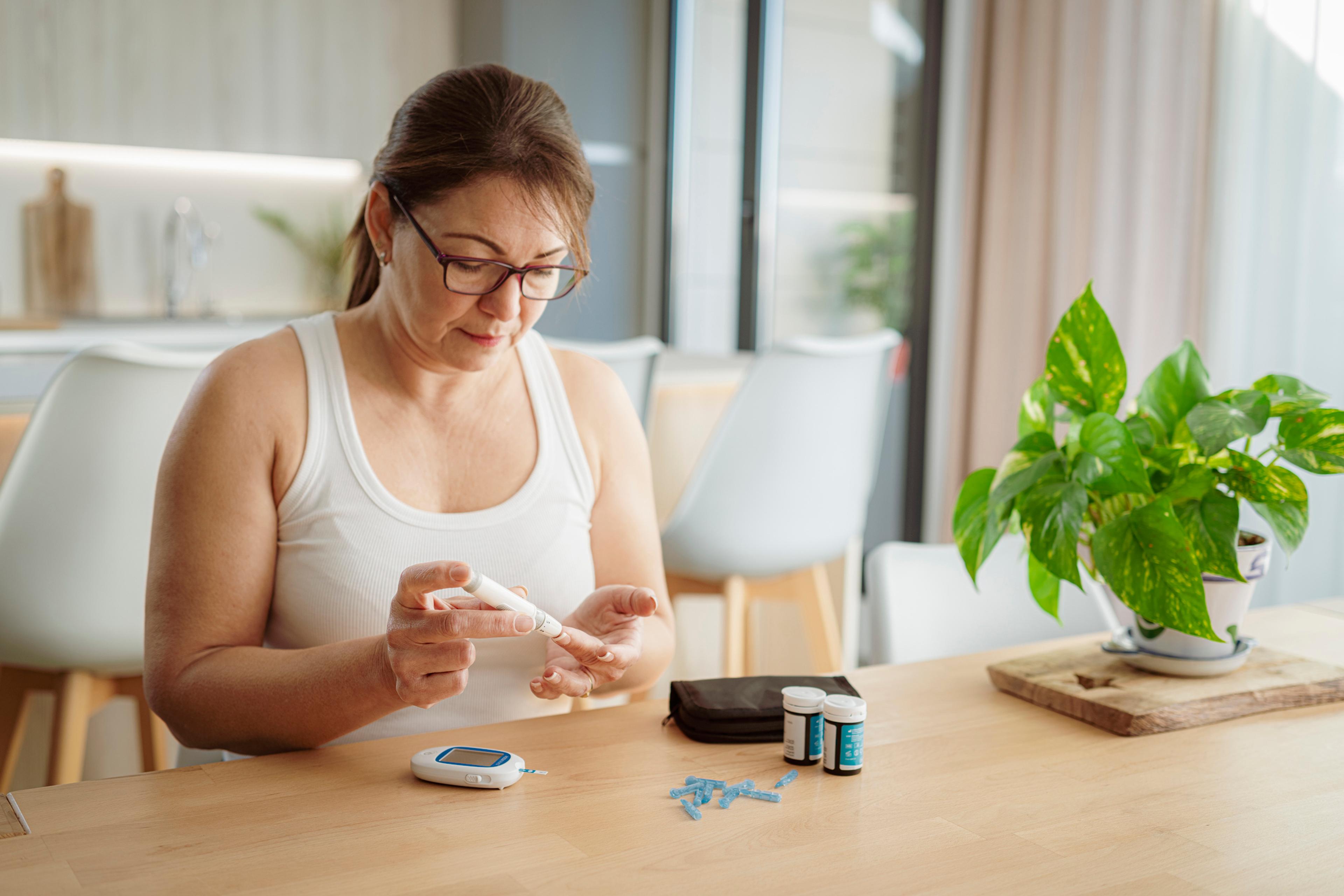How COVID-19 Can Increase Diabetes Complications, Or Increase Risk of Developing Diabetes

James Grant, M.D.
| 3 min read
James D. Grant, M.D., is executive vice president and chief medical officer at Blue Cross Blue Shield of Michigan. Dr. Grant is a native Michiganian and graduate of Wayne State University School of Medicine. He completed his post graduate training at Northwestern University Medical Center in Chicago. He is a diplomate of the American Board of Anesthesiology, completed his recertification in 2008 and is an associate examiner for the Board.

In the early days of the pandemic, physicians recognized that people living with underlying medical conditions, such as diabetes, might be more susceptible to severe illness from COVID-19. Now that the virus has been in existence for a few years, the medical community has garnered enough data, time and experience to conduct more research on its effects.
Recently, researchers found that SARS-CoV-2, the virus that causes COVID, can worsen complications in those who have diabetes. But the study goes even further. Researchers found that exposure to the SARS-CoV-2 virus can induce new diabetes cases.
According to the research, COVID can trigger an immune cell response that destroys the cells in the pancreas which produce insulin. More research is needed on how this occurs, what the risk factors are, and how to prevent it from happening.
Increased risk of severe COVID illness
Research does show an increased risk of more severe COVID illness in people with diabetes. And, those whose diabetes is not well managed are more likely to have worse outcomes than those whose diabetes is under control.
Some studies show people with diabetes are more susceptible to long-COVID than those without diabetes.
Other studies have found that COVID can worsen already existing diabetes, by impacting the beta cells that produce insulin. This can make insulin secretion less effective or can increase insulin resistance.
That’s why it’s so important for those living with diabetes to take proper precautions to avoid a COVID infection. This includes:
- Staying updated on COVID vaccines. New vaccines that protect against the newest Omicron variant KP.2 strain are available. The CDC recommends everyone age six months and older receive a dose of the updated COVID vaccines. Individuals should talk with their physician to make sure the vaccine is safe for them.
- Maintaining proper hand hygiene. Wash hands thoroughly and often, with soap and water whenever possible.
- Avoiding touching eyes, nose and mouth. Viruses spread through respiratory droplets an infected person expels when they cough, sneeze or talk.
- Staying away from those who exhibit signs of illness. Staying six feet from others can reduce an individual’s chances of getting sick.
How to Manage COVID with Diabetes
There is no research to show that people with diabetes are more likely to contract COVID than those without diabetes. If someone with diabetes does contract COVID, it’s important to keep diabetes well controlled, as this will decrease the chances of becoming very sick.
It’s a good idea to keep supplies well stocked in case a person with diabetes is quarantined with COVID. This includes:
- Enough test strips, insulin and medical supplies to cover a few weeks.
- Food, including a variety of healthy carbs.
- Simple carbs, in case there’s a dip in blood sugar.
- Over the counter medications that have been approved by the individual’s physician, to manage fever, aches and cough.
Individuals should talk with their doctor to come up with a plan for diabetes and COVID-19 management.
James D. Grant, M.D., is senior vice president and chief medical officer at Blue Cross Blue Shield of Michigan. For more health tips and information, visit MIBlueDaily.com.
Related reading:
- The Difference Between COVID-19 and the Flu
- COVID-19 Season 2024-2025: What You Need to Know
- Free COVID-19 Tests Now Available for Free Home Delivery
Photo credit: Getty Images





